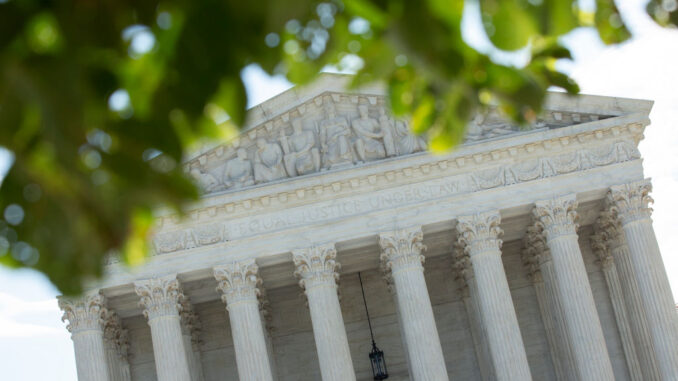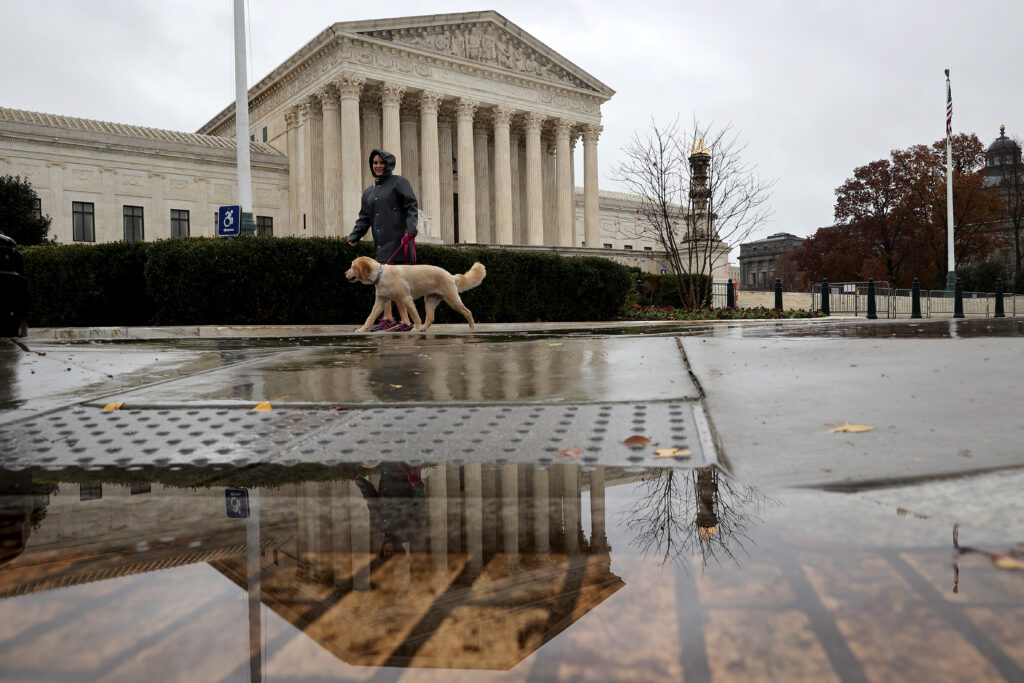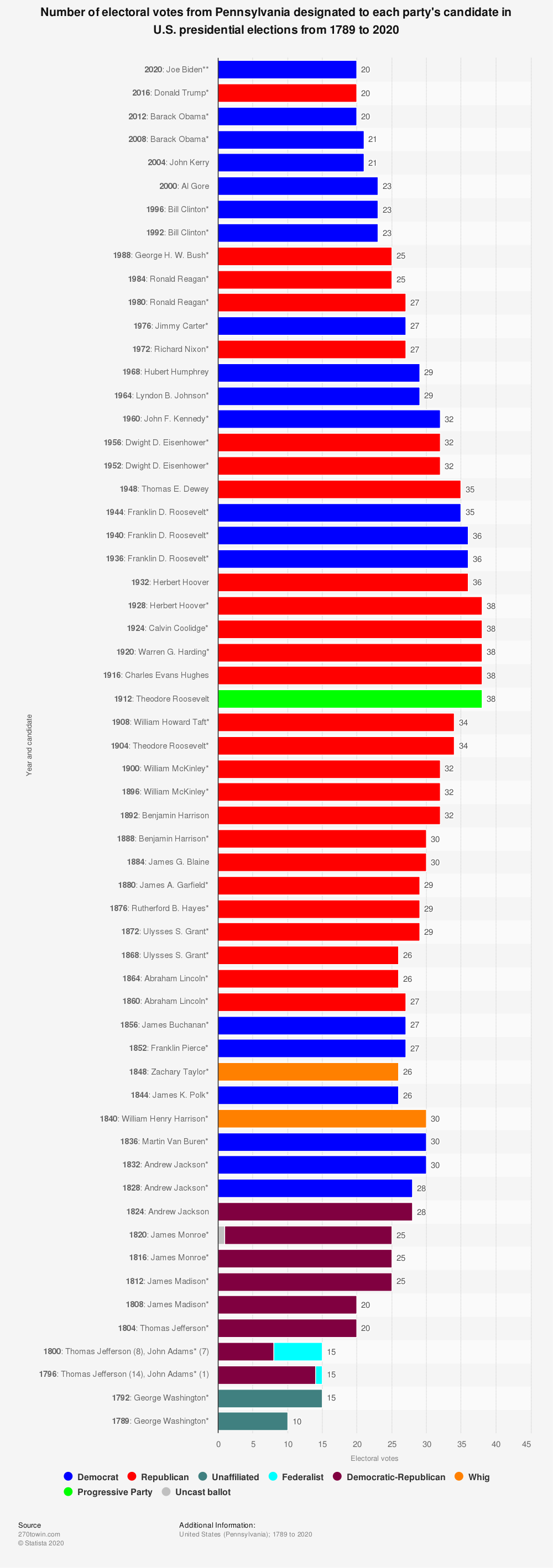
The Supreme Court of the United States on Tuesday declined a request for an injunction that would have pressed pause on Pennsylvania’s effort to deliver the state’s 20 Electoral College votes to former Vice President Joseph R. Biden. Republicans asked the court to consider tossing out nearly 3 million mail-in ballots, an unprecedented response to what an attorney argued was a method of voting prohibited by Pennsylvania’s constitution.
Lawyers representing Pennsylvania’s Democratic officials briefed U.S. Supreme Court Justice Samuel Alito on Tuesday, responding to a Dec. 3 petition from that attorney. The Supreme Court sided with the Democrats and declined to jump in with both feet. “The application for injunctive relief presented to Justice [Samuel] Alito and by him referred to the Court is denied,” the high court’s order read, without noting dissenting opinions from any justices.
The high court didn’t dismiss the possibility of hearing the case. But even if Pennsylvania Republicans prevail, that legal victory alone would not change the outcome of the presidential race or deliver control of the U.S. House of Representatives to the GOP.
“For the people who voted for Biden, what the hell do they care? Biden will still win the overall election,” the attorney, Greg Teufel, told Zenger News. “Their votes won’t be counted as part of that victory, but they also won’t be seeing the opposite candidate to who they voted for win.”
“It’s a sort of disenfranchisement, but who cares?” he said. Teufel founded and leads an eight-lawyer practice in Pittsburgh and came recommended by the state Republican Party when a sitting congressman and a losing congressional candidate decided to mount a challenge. Teufel said pro bono attorneys helped keep the case’s total legal cost under $100,000.
Teufel is primed to avoid hiring a white-shoe lawyer to deliver oral arguments. Texas Republican Sen. Ted Cruz has offered to do it free of charge. Cruz argued nine Supreme Court cases during his five years as solicitor general for Texas. Teufel said the offer was “like a gift from God.”

The Republicans’ brief to the U.S. Supreme Court said a law known as Act 77 itself violates the Pennsylvania Constitution, which describes only two ways for voters to cast ballots: in person and via absentee ballot, with a stated reason like work-related travel, illness, disability or a religious holiday.
A large majority of the mail-in ballots cast under Act 77’s rules in November included votes for Biden. Pennsylvania’s 20 electoral votes are likely his unless the Supreme Court declares the election itself was unconstitutional.
Marc Elias, a Democratic election lawyer who has briefed the case in lower courts, did not respond to Zenger’s requests for comment. In a response brief filed Tuesday morning, four different attorneys representing the state of Pennsylvania said Teufel’s suit was “nothing less than an affront to constitutional democracy. It should meet a swift and decisive end.”
“No court has ever issued an order nullifying a governor’s certification of presidential election results,” according to the response brief, which called the claims “fundamentally frivolous.”
The Democratic National Committee has argued that since Republicans waited until after the election to object to what they called an unconstitutional state law, they had squandered their opportunity. The Pennsylvania Supreme Court later agreed. Republicans had ample time to sue over Act 77 before the primary and general elections this year, that court said in a unanimous ruling.
U.S. House candidate Sean Parnell, one of eight petitioners in the case Teufel is pursuing, said he would have lacked legal standing to sue until the election was over, when he could show Act 77 caused him harm.
Act 77 includes a 180-day limit to challenge it on constitutional grounds. Democratic Gov. Tom Wolf signed it into law on Oct. 31, 2019.
Teufel cited two cases where the U.S. Supreme Court turned back efforts in Pennsylvania to broaden absentee-voting categories through a law, not a constitutional amendment. In one, the high court ruled in 1924 that unless they need absentee ballots for one of the reasons mentioned in the state constitution, Pennsylvanians must vote in person—so their neighbors can support them if their voting rights are unfairly challenged.
The Pennsylvania lawsuit, unlike those in other swing states, doesn’t rest on the argument that widespread voter fraud cost Trump re-election, a contention that hasn’t played well in courts.
Federal judges in Georgia and Michigan on Monday slapped down cases filed by the president’s lawyer Sidney Powell. U.S. District Judge Linda Parker ruled the voter fraud case in Michigan amounted to “an amalgamation of theories, conjecture, and speculation.” Parker was nominated to the bench by President Barack Obama.
U.S. District Judge Timothy Batten, a George W. Bush appointee, refused to substitute his judgment “for that of 2.5 million Georgia voters who voted for Joe Biden.” Powell and the Trump campaign, he wrote, were asking the impossible.
“They ask the court to order the [Georgia] secretary of state to decertify the election results, as if such a mechanism exists. And I find that it does not,” Batten wrote.
Georgia’s Republican Secretary of State Brad Raffensperger on Monday re-certified Biden’s Election Day win there, calling it “an important day for election integrity.”
Trump tweeted Monday that Raffensperger, Gov. Brian Kemp and Lt. Gov. Geoff Duncan were “RINOs”—Republicans In Name Only. He complained that Kemp refused to call the Georgia General Assembly into a special session. The president says the vote recounts were mere political theater because they didn’t re-examine whether signatures on absentee ballot envelopes match those in voter files.
“The Republican Governor of Georgia refuses to do signature verification, which would give us an easy win. What’s wrong with this guy? What is he hiding?” Trump tweeted.
The president called Kemp on Dec. 5, the governor’s office confirmed, in an attempt to persuade him to call a special legislative schedule. The Trump campaign believes the assembly, dominated by Republicans, should declare the election results unreliable and send its own slate of electors when the Electoral College meets Dec. 14.
The Trump campaign is still asking a Georgia court to nullify Raffensperger’s action certifying the election for Biden.
The campaign presented what it said was “sworn testimony” identifying “2,560 felons; 66,247 underage voters, 2,423 votes from people not registered; 1,043 individuals registered at post office boxes; 4,926 individuals who voted in Georgia after registering in another state; 395 individuals who voted in two states; 15,700 votes from people who moved out of state before the election; 40,279 votes of people who moved without re-registering in their new county; and another 30,000 to 40,000 absentee ballots lacking proper signature matching and verification.”
Biden led Trump by just over 12,000 votes in Georgia, according to the most recent recount.

Find more statistics at Statista
Separately, Texas Attorney General Ken Paxton filed his own long-shot lawsuit on Tuesday, asking U.S. Supreme Court justices to directly intervene in four states without waiting for a lawsuit to reach them. Paxton said in his application that Georgia, Michigan, Pennsylvania and Wisconsin had all improperly changed their election laws by using the Covid-19 pandemic to justify “executive fiat or friendly lawsuits, thereby weakening ballot integrity.”
Paxton wants the high court to prevent all four states from sending electors when the Electoral College meets on Dec. 14. The nine justices can intervene through what lawyers called “original jurisdiction,” a power that is typically applied in cases where the interests of multiple states collide.
The Arizona Supreme Court has agreed to hear an expedited appeal of a case brought by state Republican Party chair Kelli Ward. Maricopa County Superior Court Judge Steven Warner ruled Dec. 4 that Ward had not proven significant voter fraud in Arizona’s most populous county.
As in Georgia, Arizona’s Republican House Speaker Rusty Bowers said he will not call the state legislature into a special session, where Republicans might have overturned the election and sent their own electors.
Teufel had filed his emergency request for a U.S. Supreme Court injunction on behalf of U.S. Rep. Mike Kelly, Parnell and six other Republicans. Kelly won re-election, but Parnell lost his race to Democratic incumbent Conor Lamb by about 9,000 votes out of 423,000 cast. Because congressional districts in Pennsylvania cross over county lines, it’s unclear how many mail-in ballots contributed to Lamb’s victory.
The petition asked Supreme Court Justice Samuel Alito to stay the Pennsylvania Supreme Court ruling and asks the full Court to hear the case and rule quickly.
Teufel said Monday that a Supreme Court victory would not “have impact in other states,” and the election’s result wouldn’t change ”unless two other states also flip. And tell me the likely scenario where that happens?”
(Edited by Matt B. Hall and Fern Siegel)
The post Pennsylvania Mail-in Ballot Case Won’t Hand Trump a Win, Says Lawyer Petitioning Supreme Court appeared first on Zenger News.
Recommended For You.



Be the first to comment